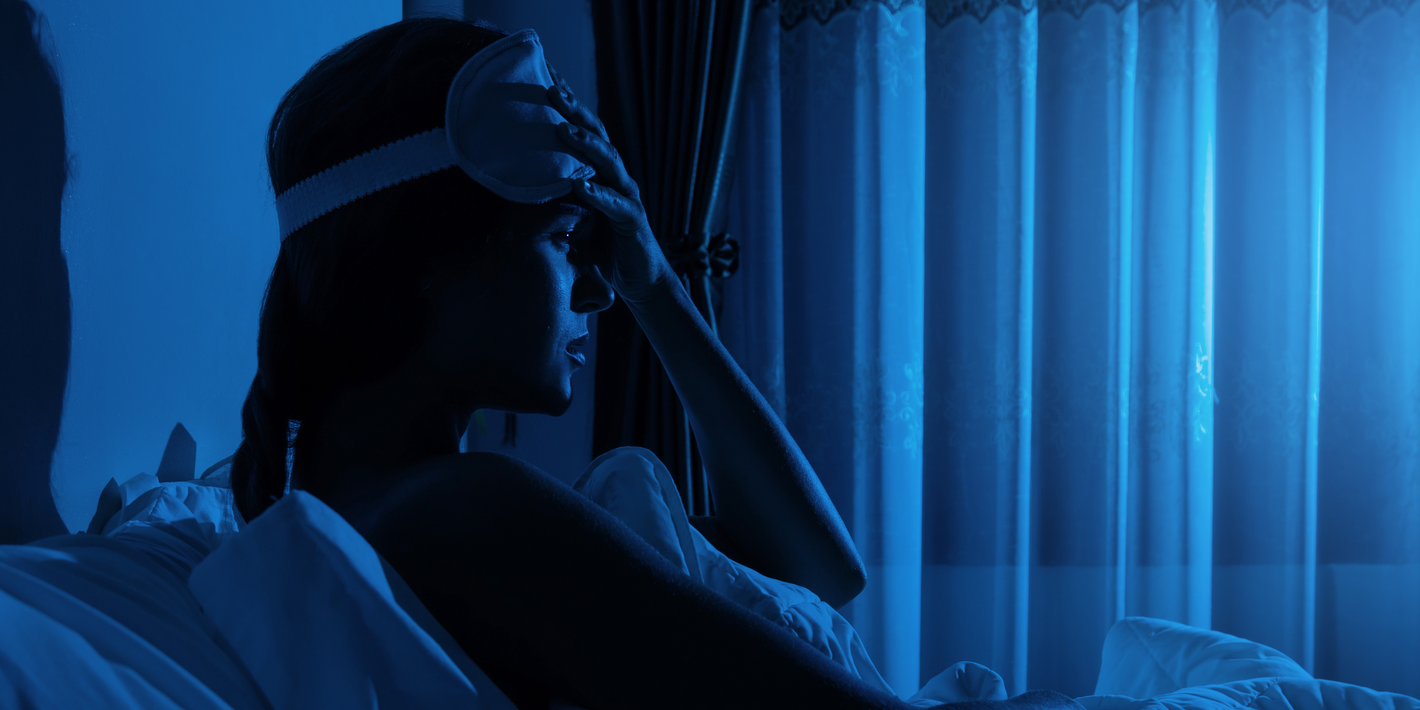
What Really Causes Insomnia
Insomnia is a sleep disorder that affects millions of people worldwide. It manifests as difficulty falling asleep, staying asleep, or both, leading to daytime fatigue, irritability, and impaired performance. In this article, we will explore the key factors that impact what really causes insomnia, including the roles of insomnia supplements, sleeping aids, and various sleeping solutions. We will discuss the tradeoffs involved in balancing these different factors, as well as the challenges associated with different approaches. By understanding the complexities of insomnia, we can gain a better understanding of how to tackle this common sleep disorder.
Understanding Insomnia
Insomnia can be classified into primary and secondary insomnia. Primary insomnia is not directly caused by any other health condition or external factors, while secondary insomnia is a result of underlying health problems, medications, or lifestyle factors. Let's delve into some of the key factors that contribute to insomnia:
Psychological Factors
Stress: Stressful life events, such as work-related issues, financial difficulties, or relationship problems, can lead to insomnia. The body's stress response can disrupt the natural sleep-wake cycle, making it difficult to fall asleep or stay asleep.
Anxiety and Depression: Mental health disorders, such as anxiety and depression, can interfere with the ability to sleep. Anxiety can cause racing thoughts and excessive worry, while depression can lead to persistent feelings of sadness and hopelessness that disrupt sleep.
Medical Conditions
Sleep Apnea: Sleep apnea is a disorder characterized by pauses in breathing or shallow breaths during sleep. These interruptions can lead to fragmented sleep and insomnia.
Chronic Pain: Chronic pain conditions, such as fibromyalgia or arthritis, can make it difficult to find a comfortable sleeping position, leading to difficulty falling or staying asleep.
Gastrointestinal Disorders: Conditions like gastroesophageal reflux disease (GERD) or irritable bowel syndrome (IBS) can cause discomfort and pain that disrupt sleep.
Lifestyle Factors
Caffeine, Alcohol, and Nicotine: Consuming stimulants like caffeine or nicotine close to bedtime can interfere with sleep. Additionally, alcohol may help individuals fall asleep initially but can lead to disrupted sleep later in the night.
Poor Sleep Hygiene: Inconsistent sleep schedules, excessive screen time before bed, or an uncomfortable sleep environment can all contribute to insomnia.
Shift Work: Individuals who work irregular hours, such as night shifts, may experience insomnia due to the disruption of their circadian rhythms.
Insomnia Supplements and Sleeping Aids
Insomnia Supplements
Insomnia supplements are over-the-counter products that claim to improve sleep quality and reduce insomnia symptoms. Some common insomnia supplements include:
Melatonin: Melatonin is a hormone naturally produced by the body that helps regulate sleep-wake cycles. Supplementing with melatonin may help individuals fall asleep faster and improve sleep quality.
Valerian Root: Valerian root is an herbal supplement that has been used for centuries to treat insomnia. Some studies suggest that it may help improve sleep quality, but more research is needed to confirm its effectiveness.
Magnesium: Magnesium is a mineral that plays a role in many bodily functions, including sleep regulation. Some studies have found that magnesium supplementation may help improve sleep quality, particularly in individuals with insomnia.
Sleeping Aids
Sleeping aids are medications, both prescription and over-the-counter, that are used to treat insomnia. Some common sleeping aids include:
Benzodiazepines: Benzodiazepines, such as Valium and Xanax, are sedative medications that can help individuals fall asleep and stay asleep. However, they can also cause dependency and have side effects,such as drowsiness, dizziness, and impaired coordination.
Non-Benzodiazepine Sedatives: These medications, also known as "Z-drugs" (e.g., Ambien, Lunesta, and Sonata), work similarly to benzodiazepines but with fewer side effects and a lower risk of dependency. However, they can still cause drowsiness, dizziness, and other side effects.
Antidepressants: Some antidepressants, such as trazodone, amitriptyline, and mirtazapine, have sedative effects and can be prescribed off-label for insomnia. While they can help improve sleep, they may also cause side effects like dry mouth, weight gain, and dizziness.
Sleeping Solutions and Approaches
Cognitive-Behavioral Therapy for Insomnia (CBT-I)
CBT-I is a structured, evidence-based therapy that targets the underlying cognitive and behavioral factors contributing to insomnia. It typically involves several components, including:
Sleep Restriction: Limiting the time spent in bed to match the actual amount of sleep needed, which can help consolidate sleep and reduce nighttime awakenings.
Stimulus Control: Establishing a consistent sleep schedule and creating a strong association between the bed and sleep by only using it for sleeping.
Relaxation Techniques: Learning and practicing relaxation techniques, such as progressive muscle relaxation, deep breathing, and mindfulness meditation, to reduce anxiety and promote sleep.
Cognitive Restructuring: Identifying and challenging negative thoughts and beliefs about sleep, which can perpetuate insomnia.
Lifestyle Changes
Making lifestyle adjustments can also help improve sleep and reduce insomnia symptoms. Some effective lifestyle changes include:
Establishing a consistent sleep schedule: Going to bed and waking up at the same time every day can help regulate the body's internal clock and improve sleep quality.
Creating a comfortable sleep environment: Ensuring the bedroom is dark, quiet, and cool, and investing in a comfortable mattress and pillows can promote better sleep.
Limiting exposure to screens before bed: Blue light from screens can interfere with the production of melatonin, making it harder to fall asleep. It is recommended to avoid screens for at least one hour before bedtime.
Engaging in regular exercise: Physical activity can help reduce stress and anxiety and promote better sleep. However, avoid intense exercise close to bedtime, as it may have a stimulating effect.
Limiting caffeine and alcohol intake: Reducing the consumption of stimulants, such as caffeine and nicotine, and avoiding alcohol before bedtime can improve sleep quality.
Balancing Tradeoffs and Challenges
When considering the various factors that impact insomnia, it is essential to balance the tradeoffs involved in using different interventions. For example, while prescription sleep aids can provide immediate relief from insomnia symptoms, they may cause side effects and lead to dependency in the long run. Additionally, insomnia supplements may offer a more natural alternative, but their effectiveness may vary, and more research is needed to determine their safety and efficacy.
Similarly, implementing lifestyle changes and engaging in CBT-I may require more time and effort than taking a pill. However, these approaches can provide long-lasting benefits without the risk of side effects or dependency. It is crucial to weigh the pros and cons of each intervention and consider individual preferences, lifestyle factors, and the severity of insomnia symptoms when making decisions about treatment.
Future Research and Developments
As our understanding of insomnia and its underlying causes continues to evolve, so too will the available treatments and interventions. Future research and developments in sleep science may lead to new and improved methods for managing insomnia. Some potential areas of advancement include:
Personalized Medicine
Personalized medicine aims to tailor medical treatments to an individual's unique genetic makeup, lifestyle, and environmental factors. As researchers continue to uncover the genetic and molecular basis of sleep disorders like insomnia, it may become possible to develop more targeted and effective treatments based on an individual's specific needs.
Wearable Sleep Technology
The increasing popularity of wearable sleep technology, such as smartwatches and fitness trackers, has the potential to revolutionize the way we monitor and analyze our sleep patterns. By providing real-time data on sleep quality, duration, and other metrics, these devices can help individuals identify potential issues and make informed decisions about their sleep habits.
Novel Therapies and Medications
As our understanding of the neurobiology of sleep deepens, researchers may discover novel therapeutic targets and develop new medications to treat insomnia. These advancements may lead to more effective treatments with fewer side effects, reducing the reliance on traditional sleeping aids and improving overall sleep quality for those affected by insomnia.
Virtual Reality and Biofeedback
Emerging technologies such as virtual reality (VR) and biofeedback may offer new ways to address insomnia. For example, VR environments can be used to create calming, immersive experiences that promote relaxation and sleep. Biofeedback, on the other hand, can help individuals gain greater control over their physiological responses to stress and anxiety, which may contribute to insomnia.
As we look to the future, a combination of ongoing research, technological advancements, and a greater understanding of the intricate factors that contribute to insomnia will undoubtedly lead to more effective and personalized solutions. By staying informed about the latest developments in sleep science and working closely with healthcare professionals, individuals can better manage their insomnia and improve their overall quality of life.
Conclusion
Understanding what really causes insomnia involves examining a complex interplay of psychological, medical, and lifestyle factors. By exploring the roles of insomnia supplements, sleeping aids, and various sleeping solutions, we can develop a comprehensive approach to address this common sleep disorder. Balancing the tradeoffs of different interventions and considering individual needs and preferences can help individuals make informed decisions about their insomnia treatment. Ultimately, improving sleep quality and reducing insomnia symptoms requires a multifaceted approach that considers the underlying causes and incorporates evidence-based strategies tailored to each individual's unique circumstances.
In conclusion, addressing the root causes of insomnia and implementing appropriate interventions can significantly improve sleep quality and overall well-being. By staying informed about the latest research and seeking guidance from healthcare professionals, individuals can find the most effective and sustainable solutions for their insomnia.
Deep Sleep Support
We’ve created a Deep Sleep Supporting supplement with a combination of the best available ingredients proven to assist in a better night’s sleep. This supplement is an easy-to-mix, great-tasting powder, offering a therapeutic dose of the nutrients your body needs to relax and fall asleep. Learn more about it here.









